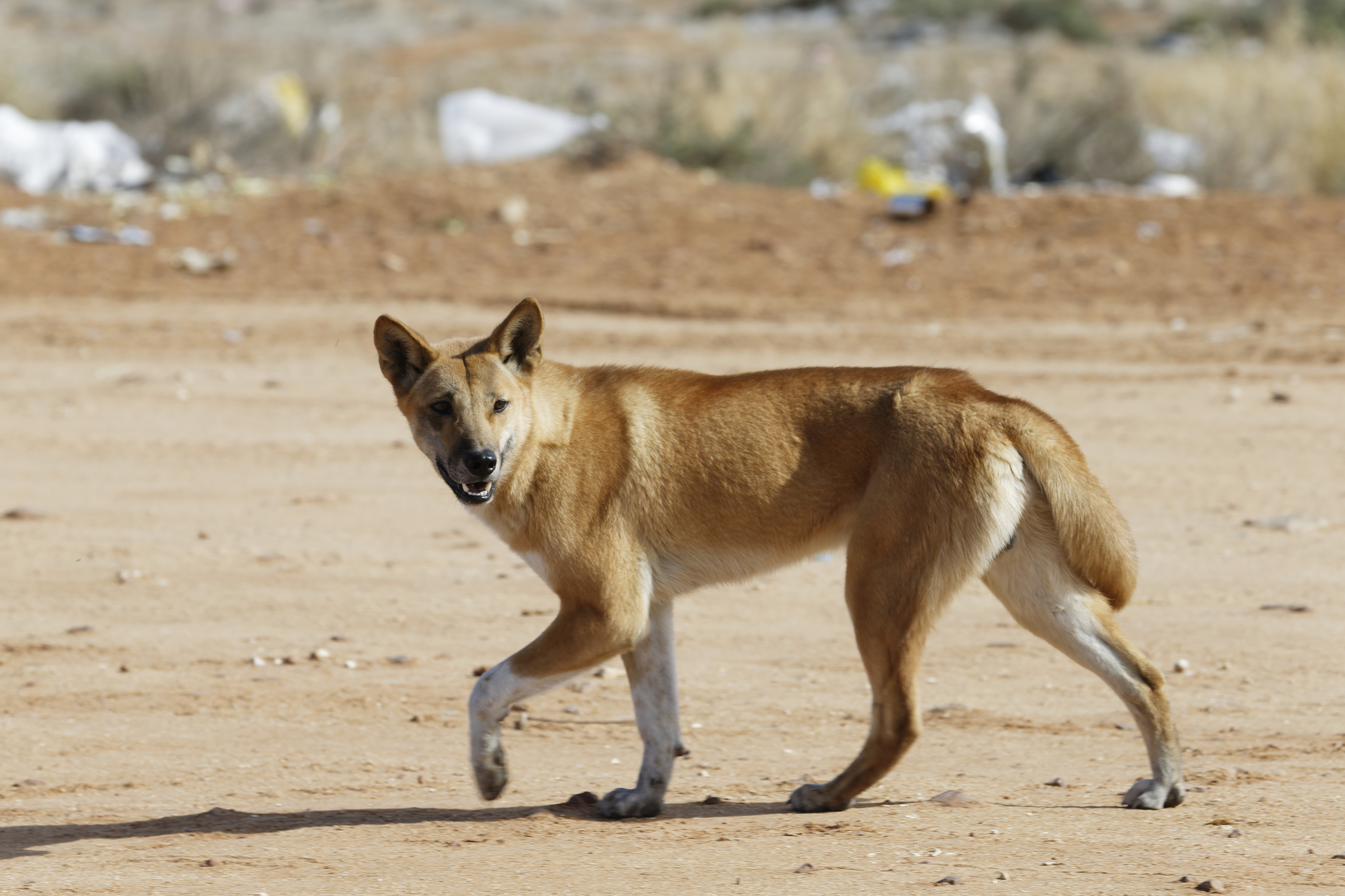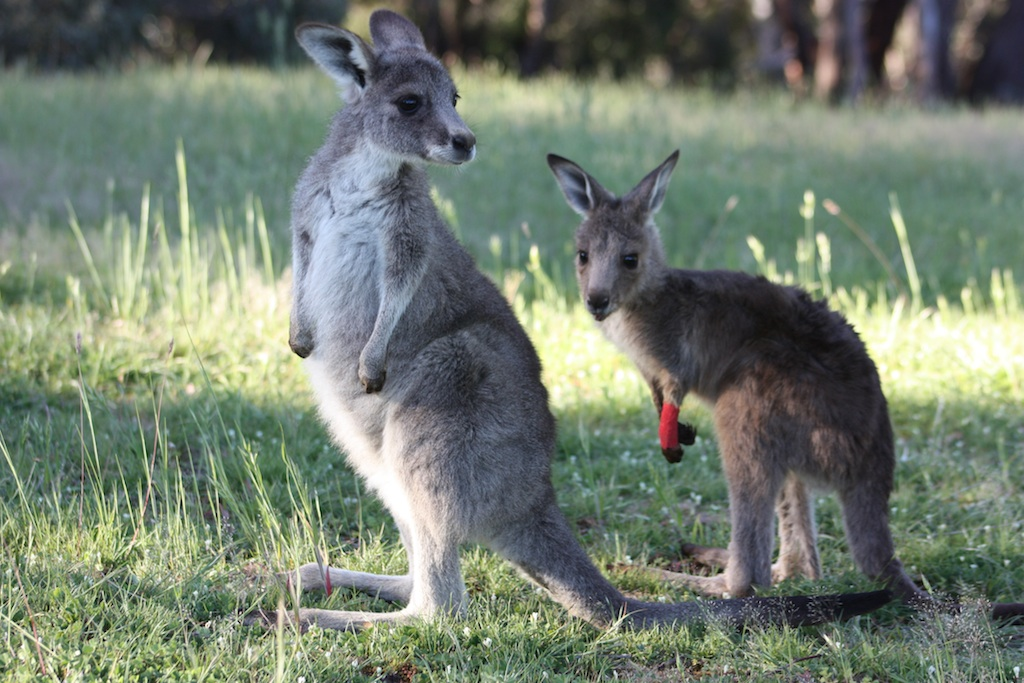Across Australia, dingoes are slowly being recognised for what they are: Australia's local apex predator with deep cultural significance and an important ecological role. Yet in many jurisdictions they continue to be subjected to widespread lethal control through baiting, trapping and shooting, due to policies that still classify them as pests or biosecurity threats. In 2023, Victoria ended...
In brief
- Figures released at the weekend show a shorter shark net season will still push the Critically Endangered grey nurse shark towards extinction on the East Coast
- Last week’s announcement to shorten the NSW Shark Meshing Program (SMP) by one month will leave destructive nets in place off 51 ocean beaches from September to March, killing Critically Endangered species like the grey nurse shark
- The data shows grey nurse sharks were caught during the same period last summer. The loss of just one grey nurse shark can be devastating to the local population which is at risk of extinction
- 84% of the grey nurse sharks caught since 2012 were breeding age females.
- HSI and AMCS call on the Government to trial a net free season this summer
The full annual shark net catch statistics, released on Saturday by the Department of Primary Industries (DPI), show continuation of the NSW Shark Meshing Program risks driving NSW’s grey nurse sharks closer to extinction.
Last week’s announcement by NSW Fisheries Minister Tara Moriarty to shorten the shark meshing program period by one month is welcomed but will still push the Critically Endangered grey nurse shark towards local extinction, says Humane Society International (HSI) Australia and the Australian Marine Conservation Society (AMCS).
“Grey nurse sharks are Critically Endangered and tragically facing extinction on the east coast of Australia,” said Lawrence Chlebeck, marine biologist with HSI Australia. The data released today shows 14 grey nurse sharks were caught off ocean beaches in Lake Macquarie, Central Coast, Northern Beaches, Eastern Suburbs, Sutherland, and Wollongong. All but three of these animals were caught between September and March.
“Distressingly, 84 per cent of the grey nurse sharks caught in the nets since 2012 were breeding-age female sharks,” he said.
HSI has obtained images of large breeding females caught and killed in the nets through freedom of information.
“By law the Government is charged with protecting and recovering the species, but the Government’s own program is knowingly removing significant numbers from the breeding female population, and it has to stop,” he said.
The figures released on Saturday show that of the 255 marine animals caught in NSW shark nets during the 2023/24 season, only 15 were those targeted: great white, tiger, or bull sharks.
Sixty-five of the marine animals caught—one-quarter—were threatened, including Critically Endangered species or protected under threatened species laws.
Other frequently caught species include turtles, rays, and dolphins.
Last week, Minister Moriarty indicated the Government will consult with local councils on the future of shark nets on their local beaches. “We are pleased the Government is willing to listen to local government views on the shark nets. Local councils have already spoken, and they overwhelmingly want the nets out. We ask the Government not to delay acting on their wishes,” Chlebeck said.
“We understand that sharks, by their very nature, evoke fear. But we cannot allow that fear to drive public safety policy, and certainly not when it means hundreds of marine animals—many threatened and Critically Endangered like grey nurse sharks—will be killed. It is time to prioritise modern technology over fear-based strategies from the 1930s,” he said.
“There should be trials of net-free beaches this summer. To save the grey nurse shark, which is Critically Endangered and poses no threat to humans, the Government must act with urgency and not procrastinate.”
Dr Leonardo Guida, shark scientist with AMCS said, “The use of shark nets are redundant when for nearly a decade, successive NSW Governments have been using modern, evidence-based solutions including drones, community education programs, and the tagging and tracking of sharks,” he said.
“The NSW Government still has the opportunity to retire the nets for good, and fully transition NSW beach safety to the modern era for the benefit of bathers and wildlife alike.”
For interviews with Lawrence Chlebeck from HSI Australia, please call 0481774581
For interviews with Dr Leonardo Guida from AMCS, please call 0400896567
Media Contact
Matthew Smeal
M: 0434 483 493
E: msmeal@hsi.org.au
Humane Society International (HSI) is the world’s largest animal protection organisation and HSI Australia established our office in 1994. We work to create a humane and sustainable world for animals advocating across wildlife conservation and animal welfare policy areas.


